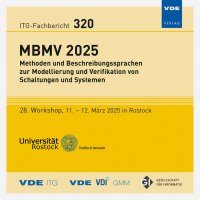Minimizing simulation effort during temporal distribution analysis in real-time systems
Conference: MBMV 2025 - 28. Workshop
03/11/0000 - 03/12/2025 at Rostock, Germany
Proceedings: ITG-Fb. 320: MBMV 2025
Pages: 8Language: englishTyp: PDF
Authors:
Gaschler, Andre; Slomka, Frank
Abstract:
Timing analysis is a fundamental aspect of real-time system design, especially in hard real-time systems where determinism and predictability of task execution are critical. Dynamic analyses using detailed simulators enable the determination of execution time distributions but also result in increased computational effort and longer simulation times. Existing approaches to reduce simulation time primarily focus on optimizing simulation hardware or simplifying model complexity, which may not be feasible when high model fidelity is required. In this paper, we introduce two methods for minimizing simulation time by reducing the number of simulation runs without degrading model complexity. Through stochastic analysis and the examination of the convergence behavior of the resulting execution time distributions, we demonstrate that convergence-based termination criteria can effectively limit simulation time even when the final distribution form is unknown. Additionally, we examined a Bayesian inference approach that further optimizes the termination threshold under the assumption of a known distribution form. Our method simplifies temporal analyses by maintaining model complexity while decreasing the number of required simulation runs, thereby enhancing efficiency without sacrificing accuracy.


